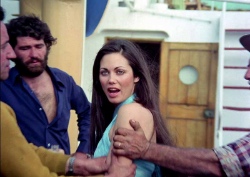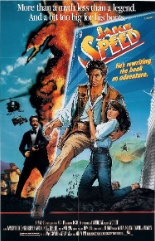
 Remo Williams and Mack Bolan are the two biggest names in men’s paperback fiction and have been for decades. We’re politely asked, however, to add another adventurer to this roster: Jake Speed.
Remo Williams and Mack Bolan are the two biggest names in men’s paperback fiction and have been for decades. We’re politely asked, however, to add another adventurer to this roster: Jake Speed.
Sure, I guess.
When her sister is kidnapped by some dirty white slavers, Margaret (Karen Kopkins), on the advice of her senile grandfather, seeks out the help of pulp hero Speed (Wayne Crawford, God’s Bloody Acre). With the help of his typist, Desmond (Dennis Christopher), they head to a stereotypical African country beseeched by civil war and, even worse, unclean showers.
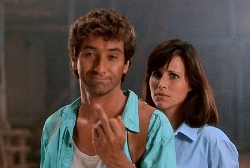 After stopping for a drink in a bar where an African band plays a delicious cover of Michael Sembello’s “Maniac,” they find her sister in a fortified jungle villa, kept prisoner by the vicious Sid (John Hurt); it’s at this point when the film truly becomes pulp fiction instead of pop parody, with Hurt squeezing every bit of scum out of his detestable villain.
After stopping for a drink in a bar where an African band plays a delicious cover of Michael Sembello’s “Maniac,” they find her sister in a fortified jungle villa, kept prisoner by the vicious Sid (John Hurt); it’s at this point when the film truly becomes pulp fiction instead of pop parody, with Hurt squeezing every bit of scum out of his detestable villain.
I remember when this flick came out in the summer of ’86. I confused the hero for many months with the also-recently released Big Trouble in Little China’s Jack Burton, both with similar ad campaigns in the Dallas papers that focused on the macho swagger of these characters. And while Burton has the advantage of being portrayed by Kurt Russell, Wayne Crawford as Speed ain’t no slouch, either.
Still, Jake Speed, though not entirely great, much like a $2.99 drugstore paperback, does its job and does it admirably, providing the world with one of its last true heroes of dime-store fiction and all the derring-do that entails. But forget the movies—I’m just more surprised that it didn’t inspire a series of cheap novels on the spinning rack. —Louis Fowler


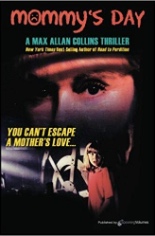
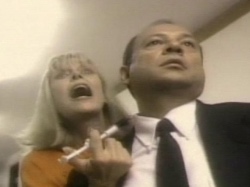
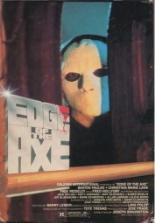
 In an alternate Earth populated by absolute jerks with loutish personalities, a white-masked killer is — and rightfully so — chopping the populace of Paddock County all to gory pieces, using the edge of his ax, of course.
In an alternate Earth populated by absolute jerks with loutish personalities, a white-masked killer is — and rightfully so — chopping the populace of Paddock County all to gory pieces, using the edge of his ax, of course.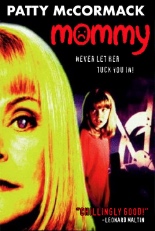

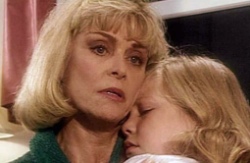
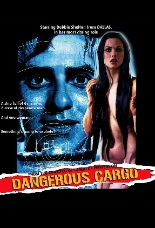
 What a ship captain thinks is cotton below deck is actually nitroglycerin —
What a ship captain thinks is cotton below deck is actually nitroglycerin — 